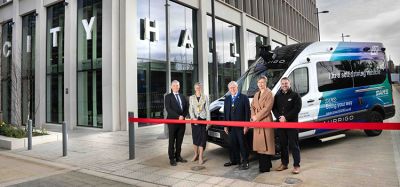UK Law Commissions publish results of automated vehicles consultation
- Like
- Digg
- Del
- Tumblr
- VKontakte
- Buffer
- Love This
- Odnoklassniki
- Meneame
- Blogger
- Amazon
- Yahoo Mail
- Gmail
- AOL
- Newsvine
- HackerNews
- Evernote
- MySpace
- Mail.ru
- Viadeo
- Line
- Comments
- Yummly
- SMS
- Viber
- Telegram
- Subscribe
- Skype
- Facebook Messenger
- Kakao
- LiveJournal
- Yammer
- Edgar
- Fintel
- Mix
- Instapaper
- Copy Link
Posted: 20 May 2020 | Sam Mehmet (Intelligent Transport)
The three-year consultation focused on Highly Automated Road Passenger Services (HARPS) which use self-driving vehicles capable of carrying only passengers or travelling empty with no human driver on board.


The Law Commission of England and Wales and the Scottish Law Commission (the Law Commissions) have published analysis of responses to their second consultation paper on automated vehicles.
This analysis is part of a three-year review of the legal framework for automated vehicles, sponsored by the Centre for Connected and Autonomous Vehicles.
The Commissions received 109 written responses from a cross-section of interest groups including car manufacturers and transport operators, expert consultants and lawyers, road safety groups, bicycle groups, emergency services, local transport authorities and disability representatives.
Key policies that attracted support included:
- Adopting national licensing for operators of Highly Automated Road Passenger Services (HARPS), covering cars as well as larger vehicles such as buses, and all types of fare structures under the same system
- Flexible regulation that encourages innovation
- Regulating accessibility of HARPS to ensure they meet the needs of disabled and older persons.
Views were said to be divided on:
- Who should administer the operator licensing scheme: whether a new agency or an existing agency such as Traffic Commissioners
- What powers do local authorities need to manage HARPS? Whereas there was general agreement that digital traffic regulation orders would help enormously, other key policies like road pricing, parking charges and quantity controls generated very mixed views.
Nicholas Paines QC, Commissioner for Public Law at the Law Commission of England and Wales, said: “We would like to thank everyone who responded to our consultation for the views and input they’ve given us.
“At a time when the future is more uncertain than ever, we look forward to using this feedback to produce final recommendations that help the UK harness the opportunities which automated vehicles provide for increased road safety, decarbonisation, and public health.”
David Bartos, Commissioner at the Scottish Law Commission, added: “This consultation highlights the essential role of regulation to ensure the introduction of automated vehicles makes life better and not worse for the communities they serve. The responses have emphasised that supporting accessibility for older and disabled people is an essential part of the successful deployment of automated vehicles for passenger transportation.”
Transport Minister, Rachel Maclean, said: “As we take steps to make self-driving vehicles a reality on our roads, the review led by the Law Commissions in the UK is vital. This piece of work demonstrates our position as a global leader and is the first to articulate how vehicles that don’t require a driver should be regulated.
“This technology could transform our lives, improve road safety and offer people better, more flexible travel options. I look forward to seeing how this consultation will inform the review and shape regulation in the future.”
The impact of coronavirus
“Since the Commissions closed their consultation on 3 February, COVID-19 has radically changed our way of life and brought enormous uncertainty about the future. It is possible to see how automation could provide opportunities in shifting to a ‘new normal’, helping to deliver essential services with less reliance on human contact and using more environmentally-friendly vehicles,” a statement from the Law Commission of England and Wales and the Scottish Law Commission read.
“However the longer term impacts of the outbreak on use of shared and mass transport is still unclear. Through this time of great change the Law Commission teams will keep the situation under review and continue to engage with people to better understand these impacts in working towards final recommendations,” it continued.
Related topics
Connected & Autonomous Vehicles, Transport Governance & Policy, Vehicle & Passenger Safety
Related modes
Autonomous vehicles
Related cities
UK
Related organisations
Centre for Connected and Autonomous Vehicles (CCAV), Law Commission of England and Wales, Scottish Law Commission
Related people
David Bartos, Nicholas Paines, Rachel Maclean







